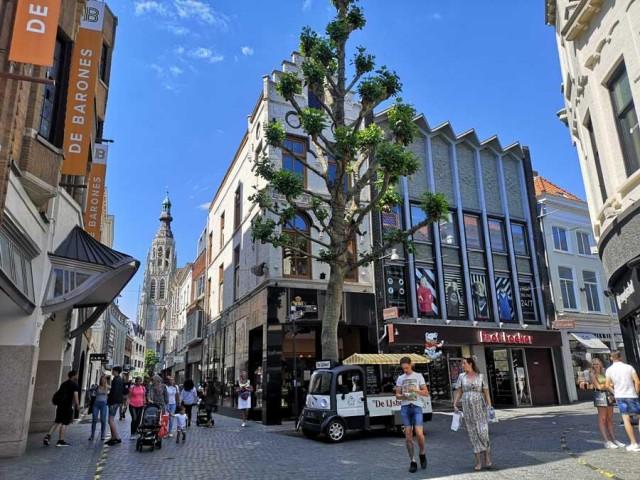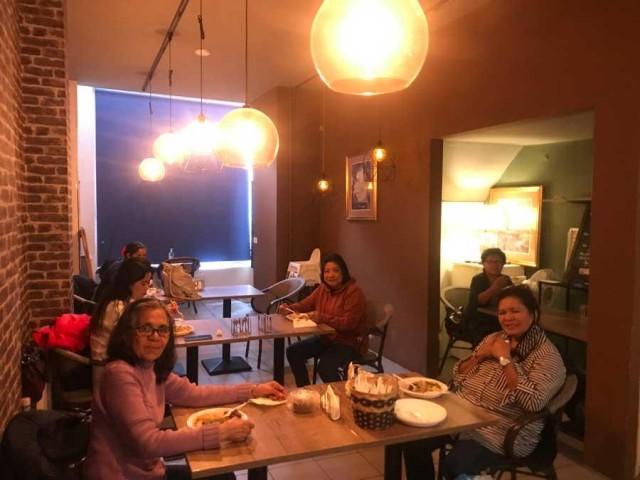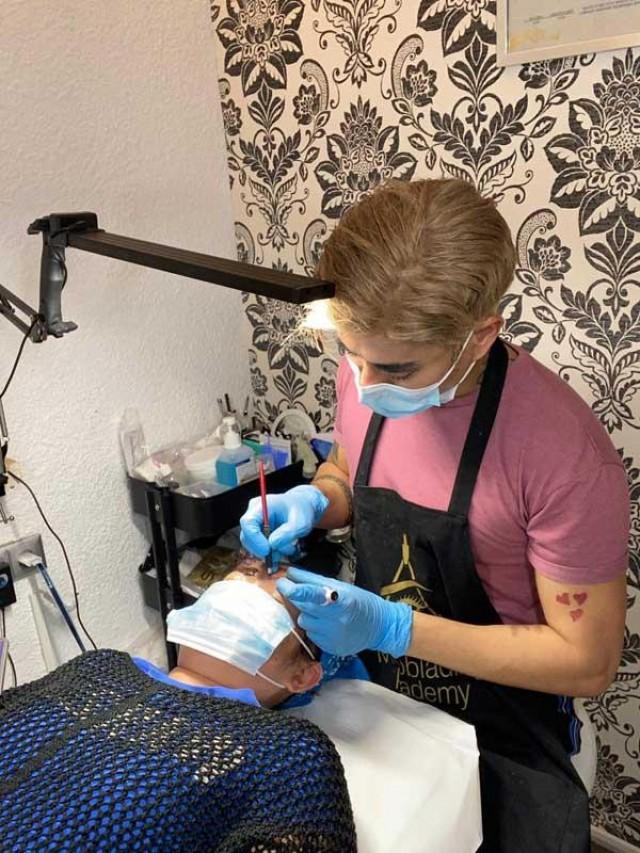Filipino businesses in the Netherlands adapt as country eases 'smart lockdown'
The Netherlands is slowly and cautiously going back into business as the Dutch government lifts constraints to aid the economy from the impact of the pandemic. Restaurants and bars, cinemas and museums have been allowed to reopen since June 1.

But there are certain conditions to meet. “We can have confidence but we must remain vigilant,” Prime Minister Mark Rutte said.
Only up to 30 guests excluding staff are allowed in bars and restaurants, and a 1.5 meter social distancing rule must be maintained. Therefore, people need to make reservations before coming in to dine in the restaurant.
For a tiny café such as Café Nordrick, a bakery based in The Hague, the number of guests allowed inside is even smaller. “Families can dine together and we can accept guest of five to 10, but we are strictly following the protocols,” owner Norma Lacorum said.

In the months that the bakery was closed, Lacorum said it was hard to keep the business running, as she turned to online and pick-up services for to sell her products. Lacorum said that she was able to receive a subsidy from the government, which allowed her to keep the maintenance of the café.
“Even when the restrictions are lifted, people are still cautious to come in restaurants for fear of contamination. We are thankful that restaurants are reopening but we have a long way to go before the situation goes back to normal,” she added.
Salons fully booked as restrictions are lifted
Edson Gonzales, Filipino owner of Eyebrow Lab, a brow bar salon based in Amsterdam, resumed its operations in May 11, after being forced to shut down for 1.5 months.
As the government eases restrictions, he noticed that people started to rapidly book appointments for eyebrow grooming and microblading. “We are now fully booked until July," he shared. "I am very happy and relieved that I can go back to business. It was hard to pay rent and bills during the closure period, but luckily, the government helped small businesses like us through financial subsidies.”

As a beauty salon operates in close contact with its clients, Gonzales emphasized the need to maintain cleanliness and hygiene. “We received guidelines from the Ministry of Hygiene. For example, clients need to wash their hands, wear facemask and gloves (optional). The salon cannot also have more than three clients inside the waiting area,” Gonzales added.
Amsterdam tourism slowly coming back to life
While apartments, guest houses, and other accommodations were not officially stopped from operating, Filipino owner Chris Sta. Brigida-Kopp said the recent months was a huge challenge for their business after European borders closed down and tourism in Amsterdam declined heavily.
“All our customers from March until July have been cancelled and ‘force majeure’ has been imposed to us, forcing us to refund even non-refundable reservations. We lost all income. The months of April, May and June are peak season and we are currently almost empty. We have guests here and there but the rates are so minimal that it doesn’t even cover our cost. We now run on around 15% of the normal business,” Sta. Brigida-Kopp said.
As tourists and visitors from nearby European countries such as Germany, the UK, or France start to travel again, Sta. Brigida-Kopp said that their efforts to maintain hygiene in their guest houses doubled.
_2020_06_18_14_27_08.jpg)
“We need to pay attention to cleanliness and hygiene more with special attention to high-touch items like door handles, remote controls, stairs handles, manuals, light switches as such. We also need to communicate to our guest and apologise for not shaking their hands and wearing protective gears like gloves and face shield so we can help them carry their bags to their rooms,” he said.
Despite the gradual reopening of Amsterdam, business owners are still generally financially challenged as costs from additional expenses (such as cleaning materials) spike. Currently, prices for renting a room in central Amsterdam are much lower. Prices today are reduced to a quarter of the usual rate, which are usually high during peak seasons.
_2020_06_18_14_26_10.jpg)
While restrictions may have been slowly lifted in the Netherlands, the government is still very cautious in its approach to open the economy fully. Other measures that are mandatory now are the use of face masks on public transport and testing of people who show symptoms of COVID-19. Everyone who shows symptoms will be able to have a test, without a doctor’s referral.
In July, the Netherlands plans to open gym, fitness centers and, and casinos. If there is no rise in infection rate, the ban on festivals and large organized events will be slowly lifted and sex clubs will also be allowed to reopen. — LA, GMA News




